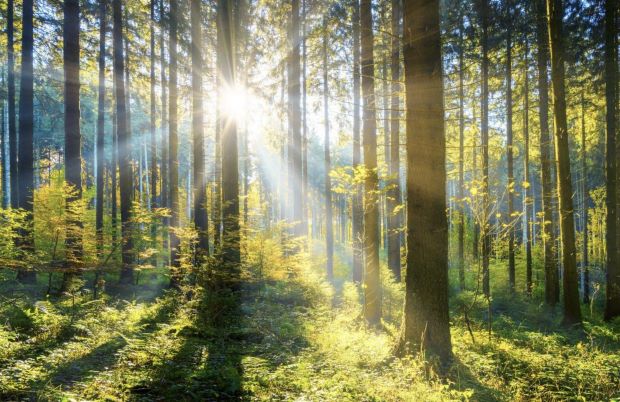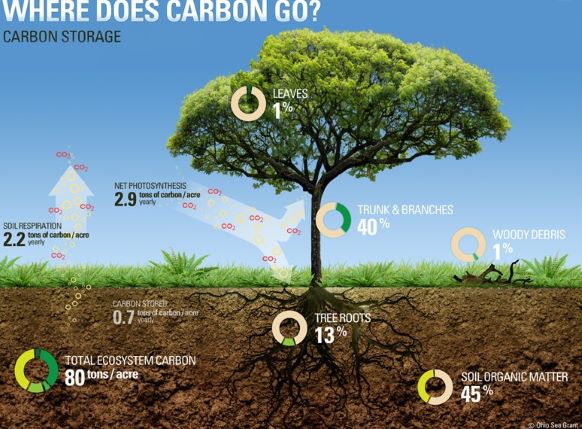

The Amazon forest fires brought upon us the realisation that trees were and will be the best defence line against the effects of climate change. The news may be a bit disheartening as a study by Bob Marra, a forest pathologist at the Experiment Station with a Ph.D. in plant pathology from Cornell University, suggests that carbon sequestering abilities of trees have changed. According to Marra, internal decay of trees has the capacity to significantly reduce the amount of carbon stored within.
The study was aimed to understand the effect of living and thriving trees. While recent studies have taken into account the decay patterns of coarse woody debris and its role as a carbon source in forests, the decades-long process of internal decay in standing, living trees has not been sufficiently addressed quantitatively to date.


His research, funded by the National Science Foundation and published in Environmental Research Letters, found that where there is decay there is less carbon, he explains, and where there is a cavity, there is no carbon at all.
“What we’re suggesting is that internal decay in trees has just not been properly accounted for,” says Marra.“You’re looking at anywhere from a 19 percent to a 34 percent carbon loss” for an actively decaying tree among those studied, Marra says. “But any place there’s a cavity you’ve lost all of your carbon.”
As a result, he believes the baseline data used to estimate carbon storage are not accurate. The US Forest Service estimates that carbon makes up 48 to 50 percent of a tree’s biomass, which is used by the US government as a baseline to calculate the estimated sequestering of carbon by forests.
Similarly, many countries, who are the signatories United Nations Framework Convention on Climate Change, ratified in 1994, report annual estimates of carbon holdings in all their managed lands. He adds that it simply points us that so far we have developed an overestimation of carbon storage of forests.
Learnings
Though the findings point towards the error in estimation, it also highlights the health, age, canopy, density and the forest growth rate are playing a major role in carbon sequestering, including diseases and biodiversity it supports.
Hence the debate to recreate or replant or regrow forests may not be the best of the decisions that climate deniers have supported. In July, a separate study by researchers found that the planet has nearly 3.5 million square miles (9 million square kilometers) to spare for trees. Such newly planted trees could cut carbon (a part of the greenhouse gas carbon dioxide) in the atmosphere by nearly 25 percent, bringing it down to levels not seen for nearly 100 years, the scientists said. They put a number of a trillion trees as the target in an area equal to about the size of the United States. It made recommendations as to where these trees can be best grown.
But the recent findings simply show that these numbers have to be higher and the quality, as well as quantity of the forests, matter too. We hope that such studies will help us better understand the complex carbon cycles of the world and throw light on how we can curb or stop emissions to begin with.
1. The mandate for blending Compressed Biogas (CBG) with natural gas has come into effect…
Andhra Pradesh is striving towards greening its energy sector with quite some speed. In a…
With an objective to bolster India’s green energy goals, a Tripartite Agreement has been signed…
The Union MNRE Minister Pralhad Joshi launched the Green Hydrogen Certification Scheme of India (GHCI)…
India’s energy conglomerate Bharat Petroleum Corporation Limited (BPCL) has commissioned a 5MW green hydrogen plant…
In a historical development, the European Space Agency (ESA) has successfully launched its pioneering ‘Biomass’…